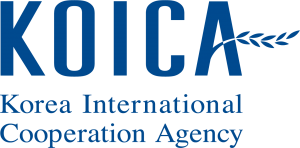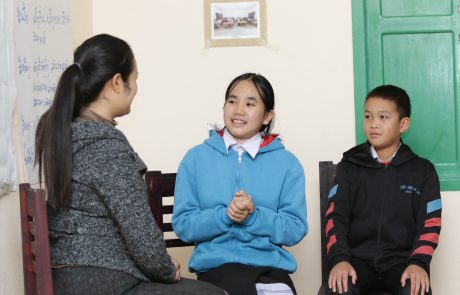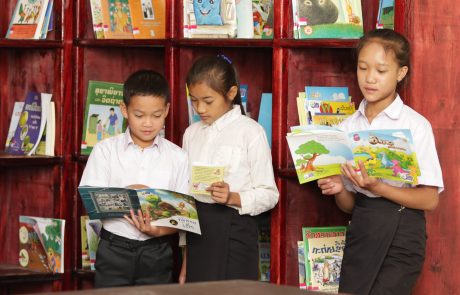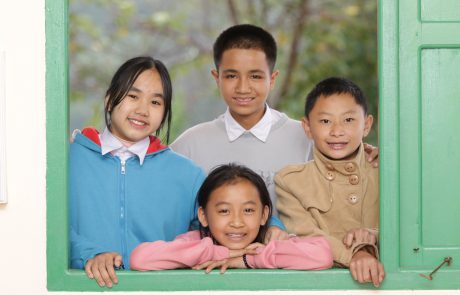Gender and Language Education for Ethnic Students’ Empowerment (GLEESE) in Xam Neua and Sopbao Districts, Houaphanh Province
Background
The Ministry of Education and Sport envisions universal and quality education by 2030, but the mid-term review of the Education Sector Development Plan (2015-2020) highlights persistent educational disparities, particularly tied to gender, wealth, ethnicity, and geography. Despite initiatives like the Education For All National Plan of Action and the National Strategy and Plan of Action on Inclusive Education, certain marginalized groups, particularly girls and ethnic minorities in remote, impoverished regions, continue to face limited access and poor quality education. Notably, Houaphanh Province, a rural area with a significant ethnic minority population, stands out as high-risk. The Lao Social Indicator Survey (LSIS II) in 2017 indicates low literacy rates, especially among women, and below-average secondary school attendance rates. Dropout rates, particularly pronounced during lower secondary school, highlight challenges, with girls’ dropout rates higher in Sopbao District and moderately elevated in Xamneua District. These findings underscore the need for targeted interventions to enhance education access and quality, especially for girls and ethnic minority students in vulnerable areas like Houaphanh Province.
Project Description
Project Goal
All girls and boys in Sopbao and Xamneua District, Huaphanh Province complete equitable lower secondary education.
Project Objectives
- Specific Objective 1: Girls and boys have improved school facilities that are child-friendly and gender-sensitive.
- Specific Objectives 2: Girls and boys are empowered in making choices about their education through awareness of gender equality.
- Specific Objectives 3: Girls and boys have improved learning outcomes in Lao language reading and writing through increases in teachers’ knowledge, skills, and resources.
Key Outputs
- Output 1.1: School facilities are constructed and renovated in a child-friendly and gender-sensitive manner.
- Output 1.2: School leaders and VEDCs are trained on school facility management.
- Output 2.1: Government partners engaged in project learnings on gender and other topics.
- Output 2.2: Teachers and community volunteers are trained on life skills curriculum.
- Output 2.3: Girls and boys receive training on life skills and gender topics through gender sensitization clubs.
- Output 2.4: Communities and families participate in awareness-raising session on gender and girls’ education.
- Output 3.1: Teachers receive training for supporting ethnic students who are Lao language learners.
- Output 3.2: Weekly Lao literacy classes, including creative writing activities, are hosted.
- Output 3.3: Libraries are constructed and equipped with reading materials.
Implementation Period
From the approved date to 31 December 2023
Supported by
The Korea International Cooperation Agency (KOICA) and ChildFund Korea as a Civil Society Cooperation Program




